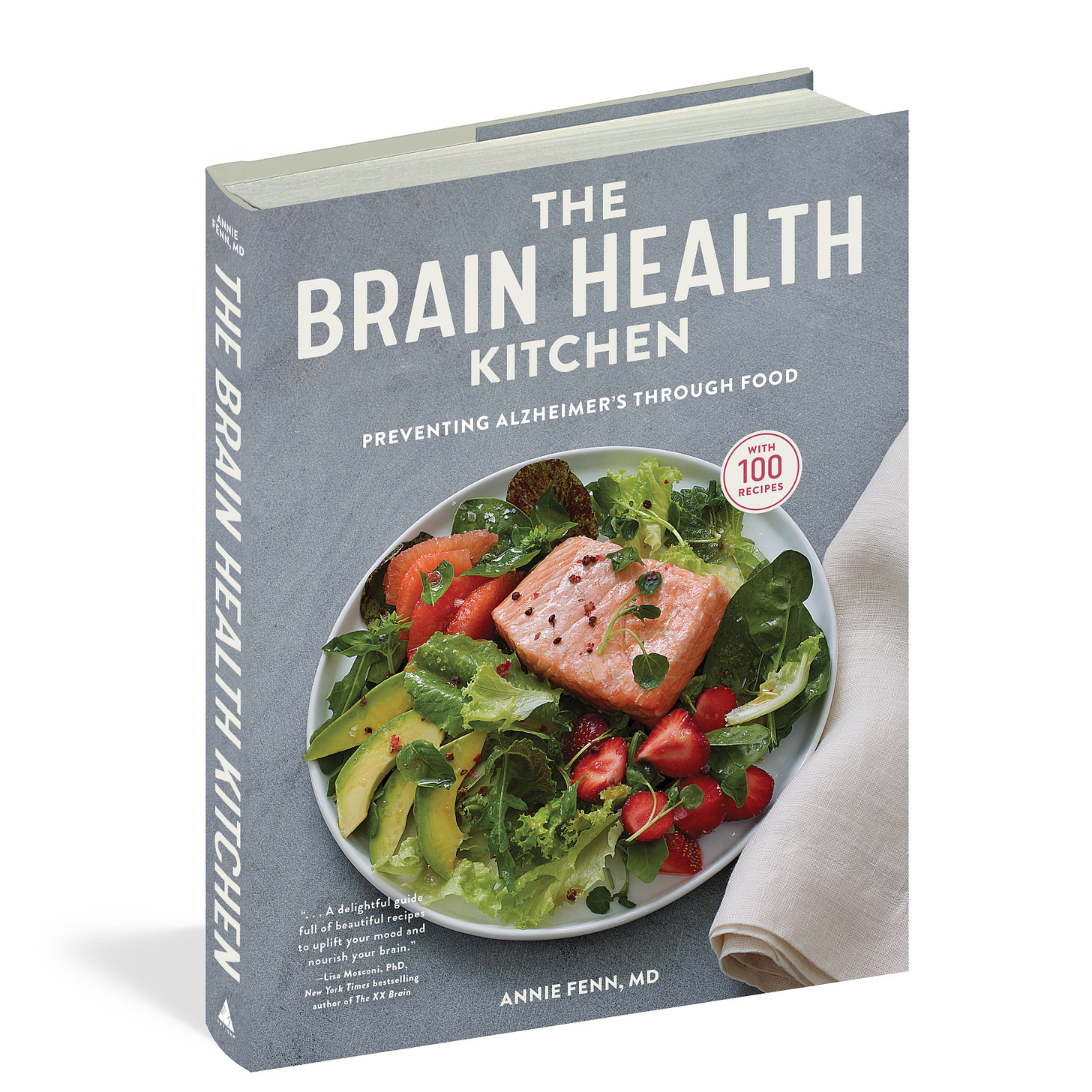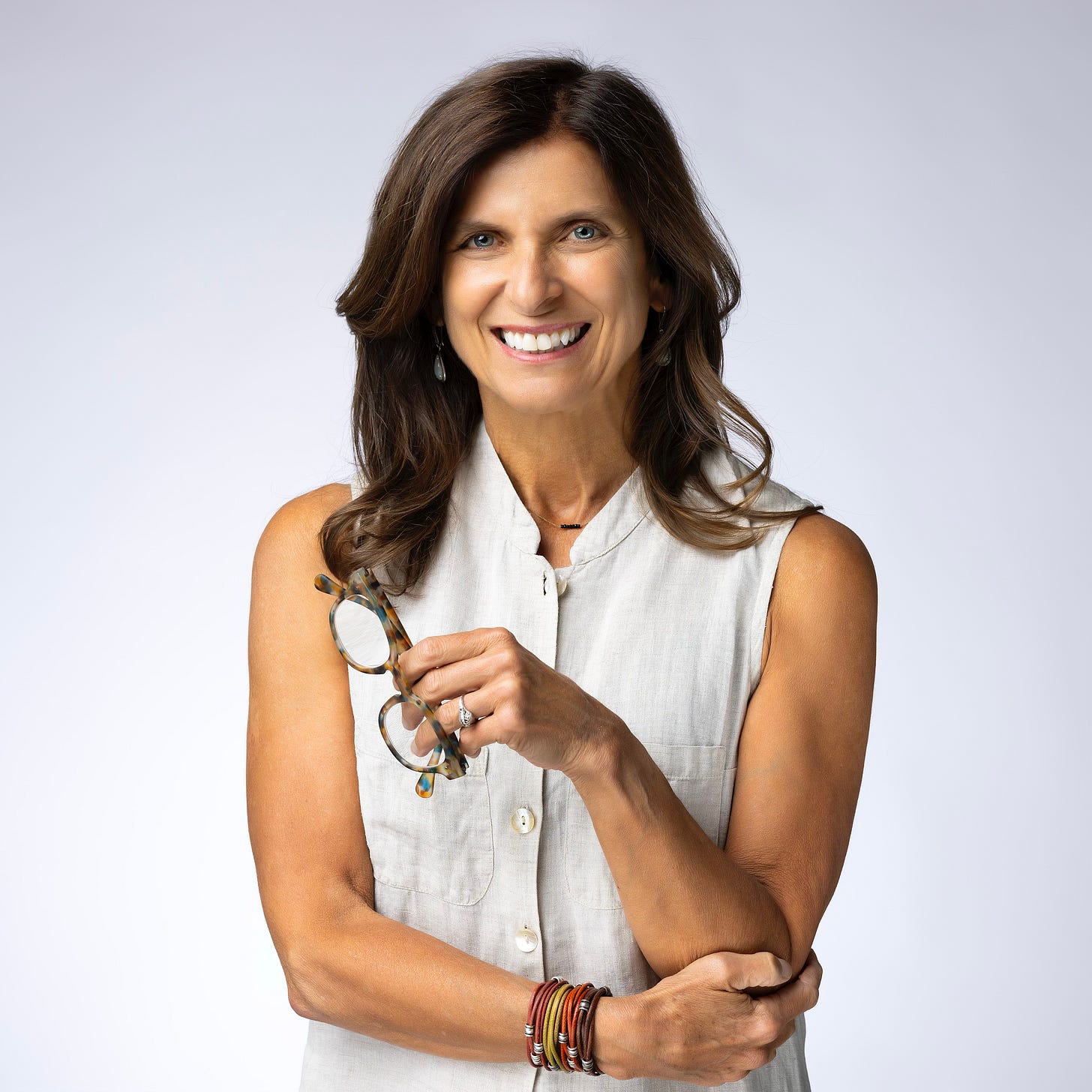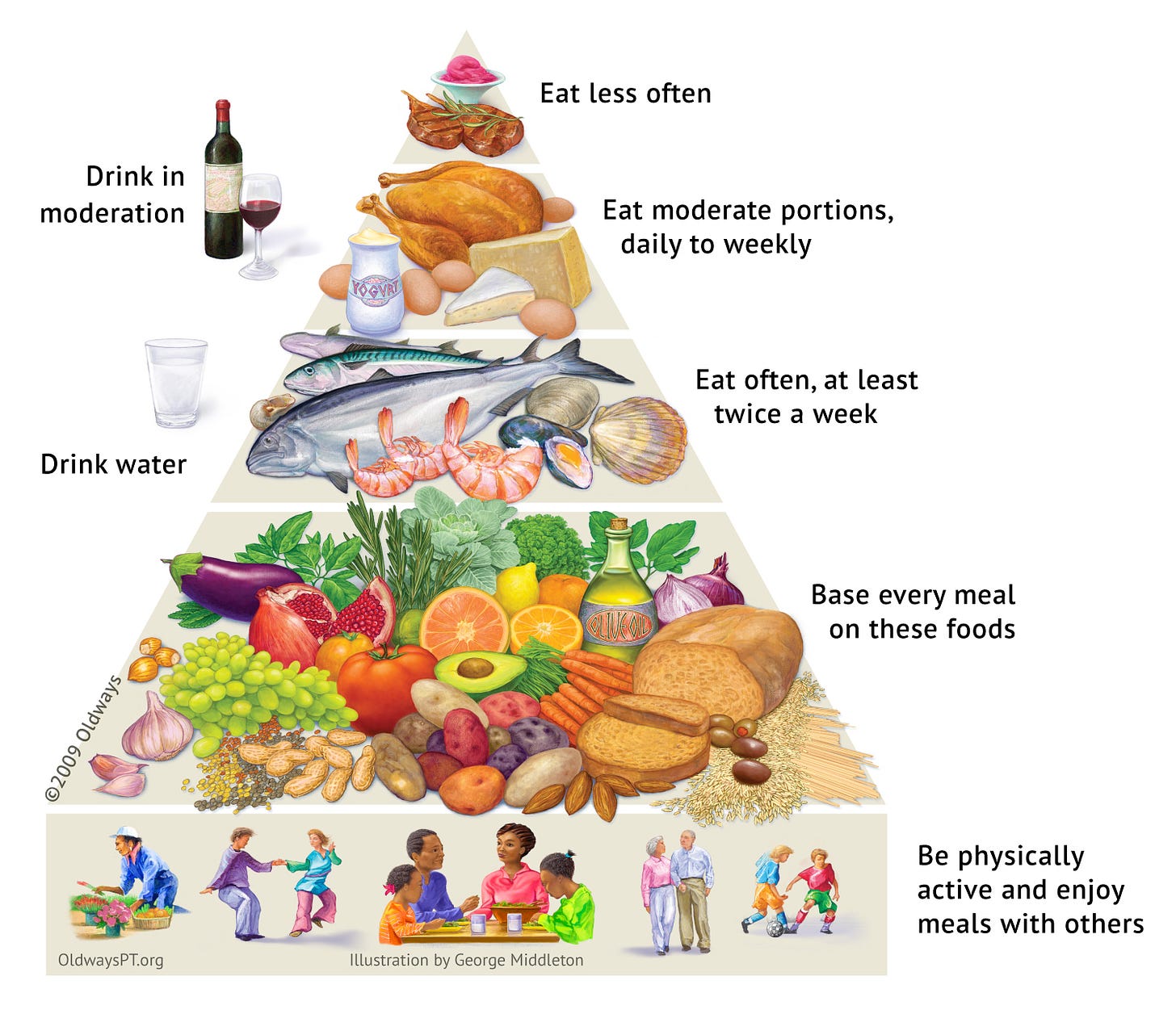Preventing Alzheimer’s Through Food
A Q&A on keeping your mind sharp with brain health expert Dr. Annie Fenn
Welcome to a newsletter themed at the intersection of longevity and wine history. 🍷
Memory loss is a concern for many people as they age. That was evident from personal notes I received last week from subscribers after they read my post about Grandma Kay’s memory challenges. Her 104th birthday is June 26.
There are steps you can do to minimize or reduce your risk of getting dementia, which is why I’m excited to share a recent question-and-answer session I conducted with physician, chef, and author
. Her book, The Brain Health Kitchen: Preventing Alzheimer’s Through Food, came out two years ago, but she’s been helping people prevent cognitive decline through food and lifestyle tips since 2015. That’s when she launched her unique cooking school with the same name as her book.This passion grew out of her own family trauma. After 20 years as a board-certified OB-GYN, she traded in her stethoscope for an apron to pursue her passion for the culinary arts. But it was her mother's diagnosis with dementia that helped Fenn find her path and her new calling, one that enabled her to not only help her mother but also create significant and meaningful impact for others.
When Fenn’s mother was diagnosed with mild cognitive impairment in 2015, she was already teaching brain-healthy cooking through her local hospital. She was also writing a very popular brain health focused Substack newsletter and speaking about Alzheimer’s prevention.
After her mom’s diagnosis, she said she decided to create Brain Health Kitchen as a cooking school and concentrate all of her efforts toward Alzheimer’s prevention.
“The kitchen became my classroom, a place where people could learn how to best protect their brains and age as successfully as possible,” she said.
This coming week I will be at the What’s Next Longevity Venture Summit, in Berkeley, California. The dates are June 9-11. If you are going, find me and say hi!
A conversation with Dr. Annie Fenn
Here’s my conversation with Dr. Annie Fenn covering 12 questions on how small habits, red wine, culture, among other things that can impact your brain health.
1. How did the idea for the Brain Health Kitchen first come to life in your own home?
The first cooking classes were part of a 12-week dementia prevention program I helped teach with the cognitive health specialist at my local hospital. I created recipes based on the foods from proven brain-protective dietary patterns, such as the Mediterranean and MIND diets. My goal was to use the kitchen as a learning lab and to get people enthusiastic about cooking healthy food. Of course the recipes had to taste amazing or else this idea would never have worked! My earliest students were healthy elders in my community.
2. Why do you believe consistency — small habits over time — is so important for brain health?
Studies support that habits are more likely to stick if they are adopted one at a time. The nutrition data also supports the power of small dietary changes. Increasing the number of times a month one eats leafy greens, for example, translates to measurable brain health gains on MRI. And swapping in extra-virgin olive oil for a saturated fat food (like butter or mayo) significantly reduces cardiovascular risk, which also translates to better brain health.
3. The MIND and Mediterranean diets — both of which are rich in vegetables, fruits, whole grains, olive oil, beans, and fish — are associated with fewer signs of Alzheimer’s disease in the brains of older adults. What makes the Mediterranean diet more of a lifestyle than just a meal plan?
It was always intended to be a lifestyle that includes taking time at the table to enjoy food with family and friends. Mediterranean people tend to move naturally throughout the day. Walking after a meal — the passeggiata in Italy — is both ingrained in the culture and a proven way to improve one’s metabolic health.
4. How do you recommend people start shifting toward this way of eating?
Start with where you are. Take a look at the Mediterranean food pyramid and take inventory of the foods you already like to eat. Then look at the foods you may be ignoring; people often avoid eating important Medi food groups like beans and legumes, fish and seafood, and a wide array of vegetables. Start adding these into what you eat throughout the week. Over time, you’ll be building your own food pyramid, but one that is personalized to what you like to eat, your budget, and how food fits into your life. This speaks to “fit”, one of my 4 F's of brain-healthy eating. An eating pattern has to fit your life in order to be sustainable. (My other 3 F’s are flavonoids, fiber, and brain-friendly fats.)
Source: www.oldwayspt.org
5. You’ve mentioned moderation with red wine — what’s the latest thinking there?
Wine is a traditional food in Mediterranean cultures where it is enjoyed in small amounts, and always as part of a meal enjoyed with other people. It’s a far cry from the way alcohol is often consumed in the U.S. And still, we can’t ignore the latest data that shows moderate drinking may accelerate cognitive decline over time. When the UK Biobank study in 2021 looked at over 36,000 serial brain scans to determine what level of alcohol intake impacts brain volume, the results were striking. Moderate drinking (one drink a day for women, two drinks a day for men) was associated with smaller brain volumes than light drinking (up to 4 drinks a week) or not drinking at all.
I love drinking wine, especially red wine. So how do I reconcile this? When in Italy, I drink as the Italians do—small portions as part of a meal shared with others. Back home in the U.S., I try to keep my intake under 4 drinks per week.
6. Why do you emphasize eating food in combination rather than focusing on superfoods?
My recommendations are driven by data. All of the proven brain-protective dietary patterns focus on food groups over superfoods. For example, the MIND diet study in 2015 showed that eating from 10 brain-healthy food groups was associated with reducing the risk of Alzheimer’s and other dementias by as much as 53%. Plus, the word “superfood” doesn’t have an official scientific definition, making it impossible to study. So while I may think of some foods as superfoods (blueberries, walnuts, and green tea come to mind!), the science supports choosing from a variety of foods within food groups for brain-healthy eating.
7. What role does culture or tradition play in how successful a brain-healthy diet can be?
Culture plays an immense role! In Italy, for example, there is a shared tradition of hyper-seasonal eating. Not only are foods eaten at their peak of freshness and flavor, they are more nutrient dense. It's far easier to stick to a brain-healthy way of eating when all your friends and family are eating this way. In Italy, it’s normal to eat a lot of vegetables, legumes, whole grains, fish, and seafood. It’s normal to move naturally throughout the day and walk after meals. And it’s normal to use extra-virgin olive oil abundantly for both cooking and drizzling on food.
Putting it into practice
8. What are three go-to grocery items you never skip for brain health?
Leafy greens, berries, and nuts.
9. How can someone on a budget still follow a Mediterranean-style diet?
Buy frozen vegetables and berries. Shop in bulk for whole grains, nuts, seeds, and legumes. Avoid food products that are marketed to be healthy; instead buy the best quality whole foods you can afford.
10. How do you encourage consistency without turning eating into a chore?
It helps to have a collection of great recipes to find new ways to eat Mediterranean foods. And don’t ignore other styles of cooking; you can still eat Medi foods in an Asian-inspired stir-fry or a Latin American dish.
11. How should someone track progress if brain health is the goal?
I’m an advocate of having a brain health check-up and tracking progress closely. This includes a simple cognitive test, an assessment of nutrition and lifestyle habits, and laboratory data (like cholesterol and blood glucose) to catch any problems early. I’ve written extensively about this in my book and newsletter.
12. What gives you the most hope in the science of food and brain health today?
In 2025 we can say with certainty that Alzheimer’s and other dementias are mostly preventable. There are 14 scientifically recognized modifiable risk factors that could eliminate 45% of the global burden of dementia. We also have data to say that stacking up healthy lifestyle habits, such as a brain-healthy eating pattern and exercise, can reduce dementia by as much as 60%. The more we learn about how to keep our brains thriving with age, the more we realize it comes down to simple things: eating a Mediterranean-style diet, movement, mitigating stress, getting enough high-quality sleep, and preventing chronic disease.
If you’re new here—hi, I’m Kevin!
I’m the author of 🍷 Rain on the Monte Bello Ridge,🍷 my forthcoming memoir about health, aging and winemaking. (Read the origin story of the book.) 🍇
The Centenarian Playbook is my newsletter, which features:
Healthy aging/longevity tips and stories from Grandma Kay’s long life.
Wine history & stories of the Gemello Winery
Ancestry & family research tips
There are three buttons at the bottom of every post: “like,” “comment,” and “restack.” Restacking is sharing in digital form. It goes out to the Substack community. If you enjoy the content and click “Restack,” it helps a lot.







Thanks for the conversation Kevin! I sure wish I could join you at the Longevity Summit. I'll be interested to hear what you learn.
I love the work you are doing. The conference you will be attending sounds wonderful. I'm a licensed nutritionist who teaches the lifestyle of longevity.